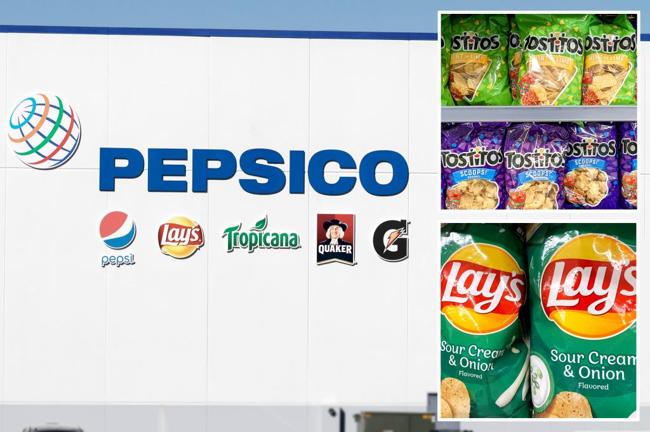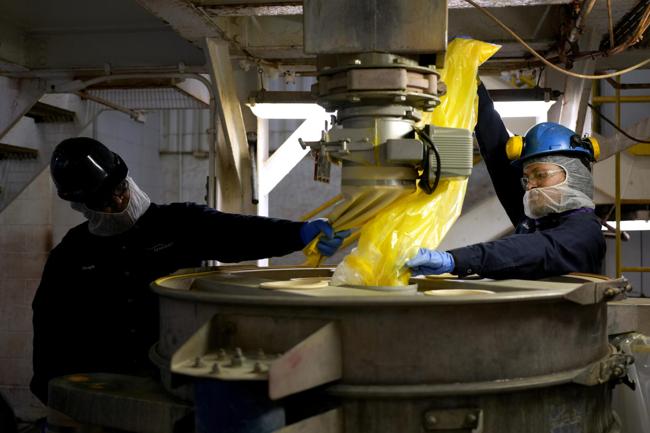Summary
Heeding the call to ban artificial ingredients by Health and Human Services SecretaryRobert F. Kennedy Jr., PepsiCo isnt wasting any time getting started.
Source: New York Post

AI News Q&A (Free Content)
Q1: What steps is PepsiCo taking to remove artificial ingredients from its food products by 2025?
A1: PepsiCo is actively working towards removing artificial ingredients from its food products by the end of 2025. This initiative aligns with the growing demand for healthier and more natural food options. The company is expected to reformulate its products using natural alternatives that maintain the taste and quality consumers expect. This commitment comes in response to public health advocacy and regulatory encouragement to enhance the nutritional profile of processed foods.
Q2: How does PepsiCo's planned removal of artificial ingredients impact its product lineup and market position?
A2: PepsiCo's initiative to eliminate artificial ingredients is likely to enhance its market position by catering to health-conscious consumers. This move could positively impact consumer perception and increase market share, especially among those seeking cleaner label products. It also aligns with a broader industry trend towards transparency and health-focused product development, potentially setting a new standard for competitors.
Q3: What are the potential health benefits of removing artificial ingredients according to recent scientific research?
A3: Recent scientific research indicates that removing artificial ingredients can lead to health benefits, including reduced risks of allergies and adverse reactions. Studies suggest that synthetic additives may contribute to hyperactivity in children and other health issues. By transitioning to natural ingredients, companies can potentially improve consumer health outcomes, aligning with recommendations from health organizations.
Q4: What challenges might PepsiCo face in implementing the removal of artificial ingredients from their products?
A4: PepsiCo may face challenges such as maintaining product taste and shelf life without artificial preservatives or flavorings. Sourcing high-quality natural ingredients that meet consumer expectations and regulatory standards can be complex and costly. Additionally, the company must ensure consistent supply chain logistics and manage potential increases in production costs.
Q5: What role do sustainable technologies play in the purification of food ingredients like starch hydrolysates?
A5: Sustainable technologies, such as membrane-based methods, play a crucial role in the purification of food ingredients like starch hydrolysates. These technologies help reduce impurities while minimizing energy consumption and environmental impact. They operate efficiently at lower temperatures and without harmful chemicals, aligning with the industry's shift towards more sustainable and organic ingredient processing.
Q6: How does public perception influence PepsiCo's decision to reformulate its products without artificial ingredients?
A6: Public perception heavily influences PepsiCo's decision, as consumers increasingly demand transparency and healthier food options. The growing awareness of the potential health risks associated with artificial ingredients has led to a preference for natural alternatives. This societal shift pressures companies to adapt their product offerings to meet consumer expectations and maintain brand loyalty.
Q7: What are the broader implications for the food industry if more companies follow PepsiCo's lead in removing artificial ingredients?
A7: If more companies follow PepsiCo's lead, the food industry could see a significant shift towards cleaner labels and natural ingredients. This trend may drive innovation in ingredient sourcing and product formulation, potentially increasing costs but also resulting in healthier products. It could lead to stricter regulatory standards and a reevaluation of what constitutes a 'natural' product, ultimately benefiting consumer health and trust.
References:
- PepsiCo
- Impact of artificial food ingredients on health
- Starch hydrolysates, their impurities and the role of membrane-based technologies




